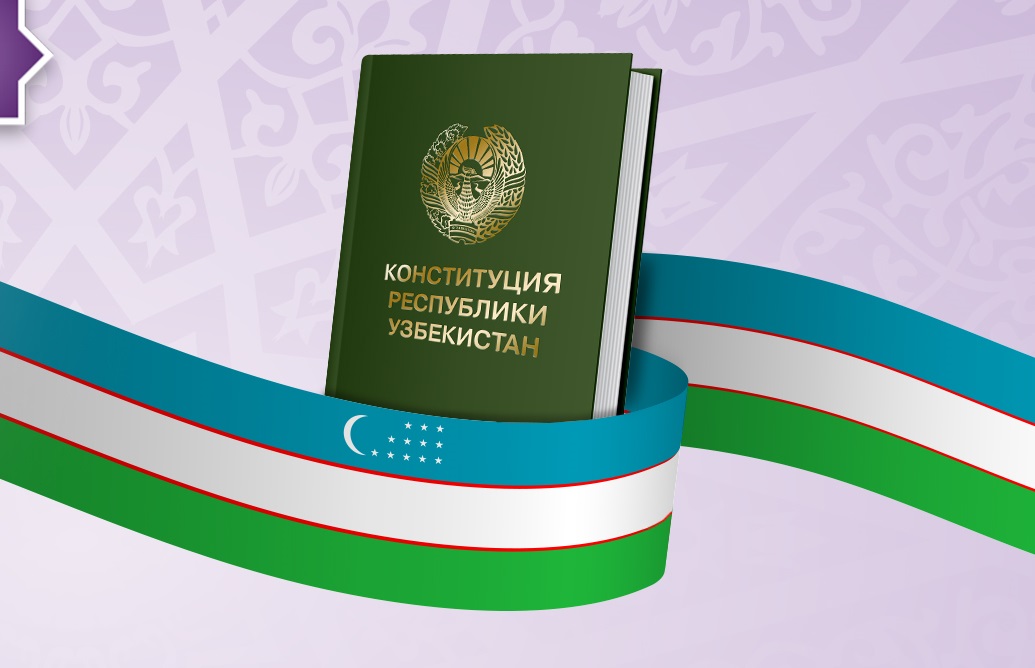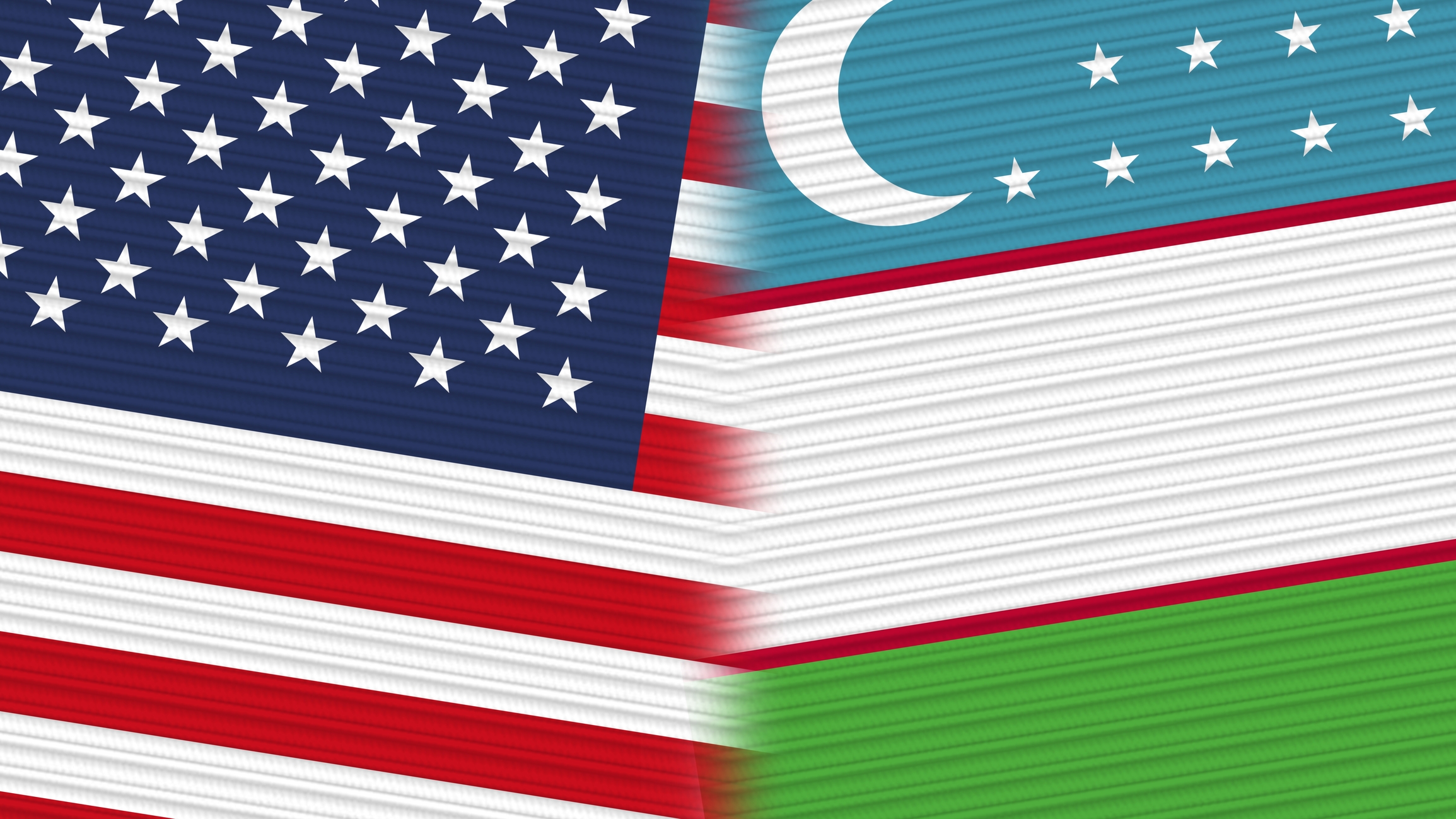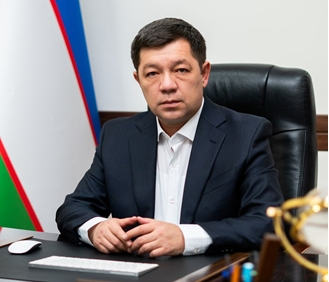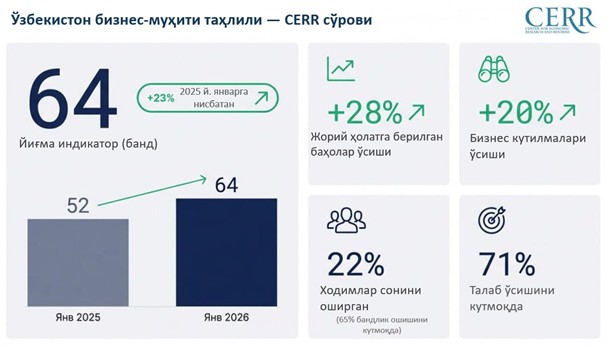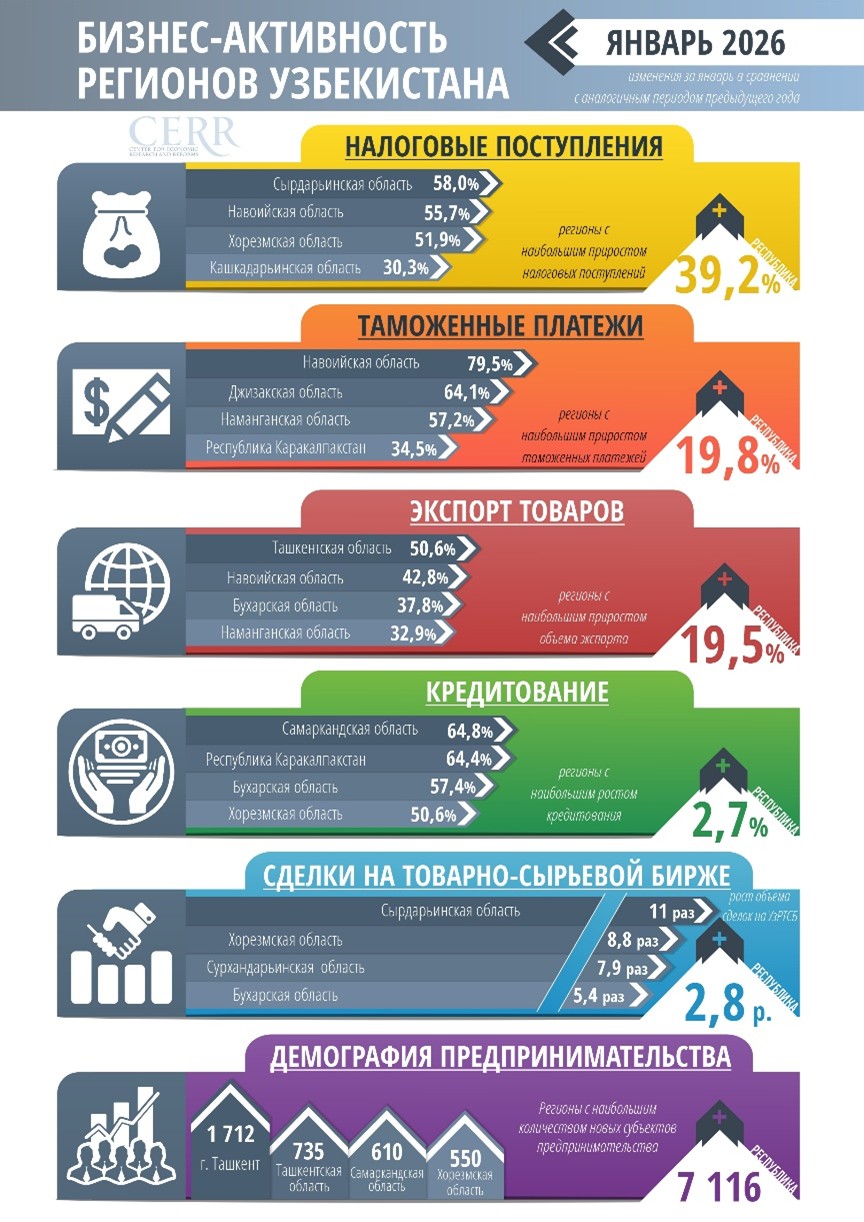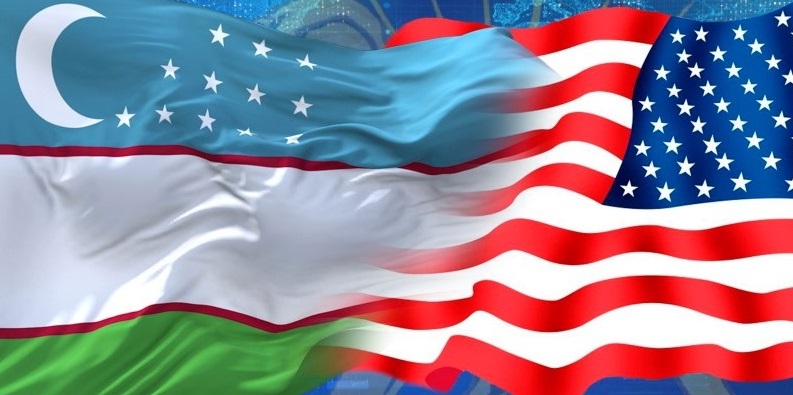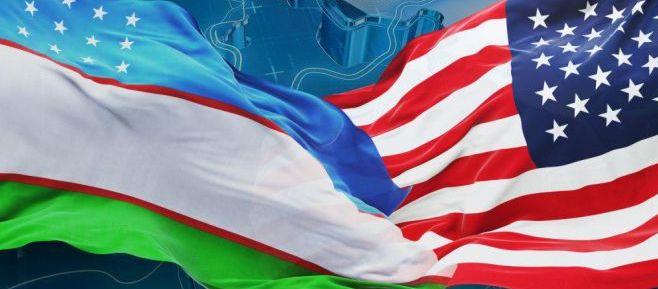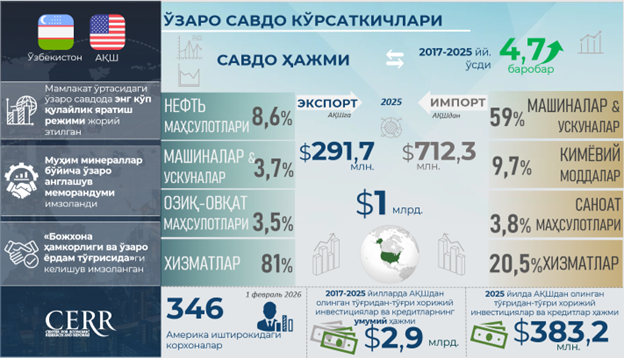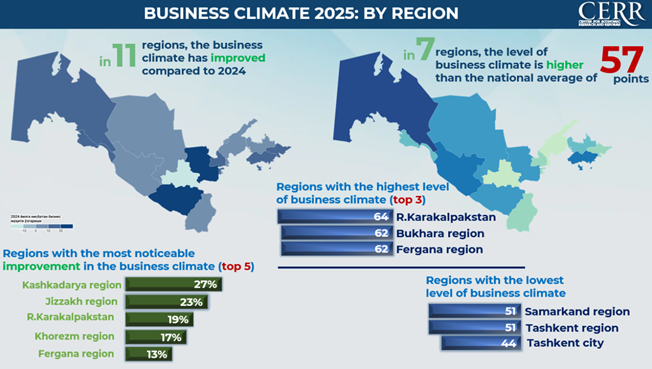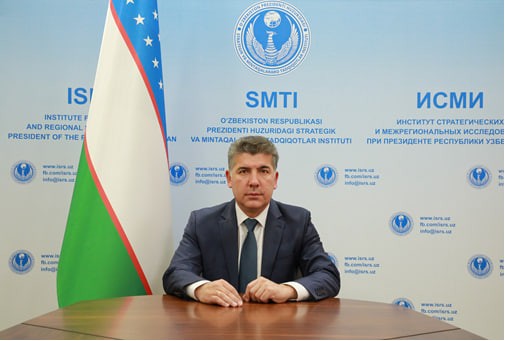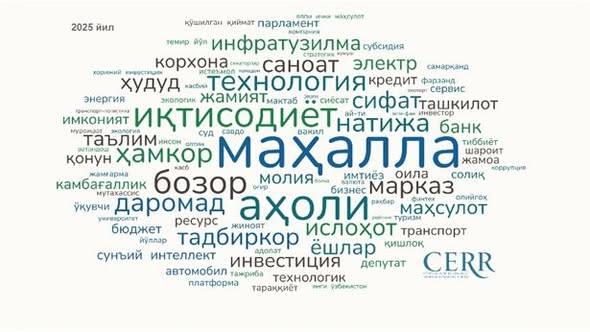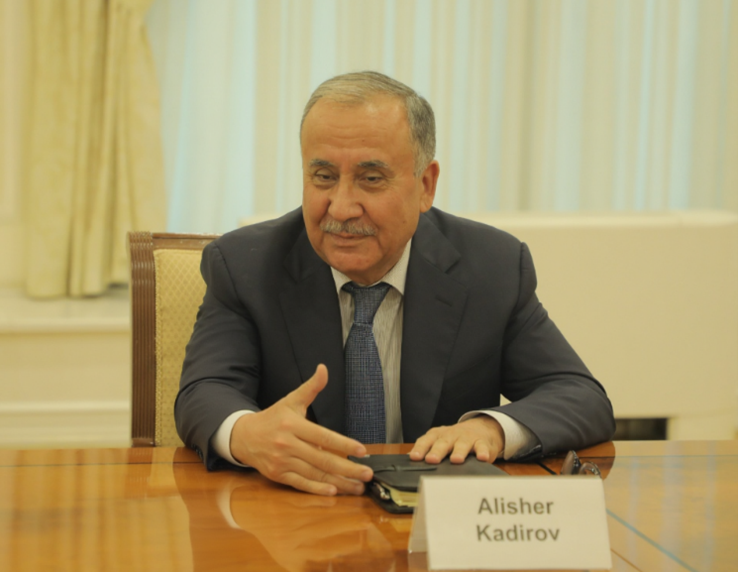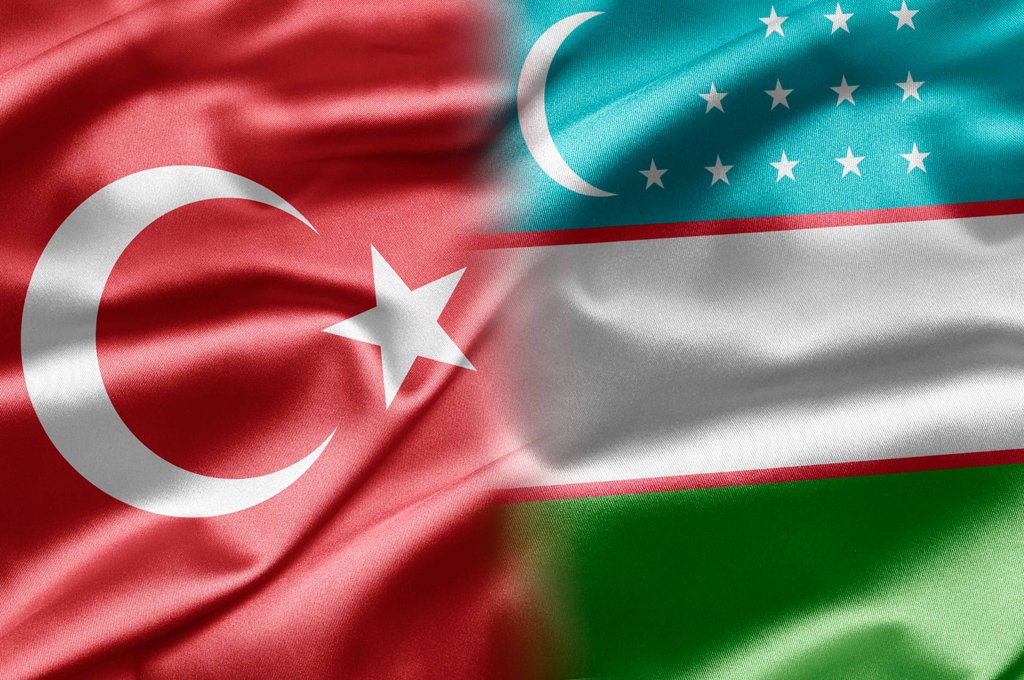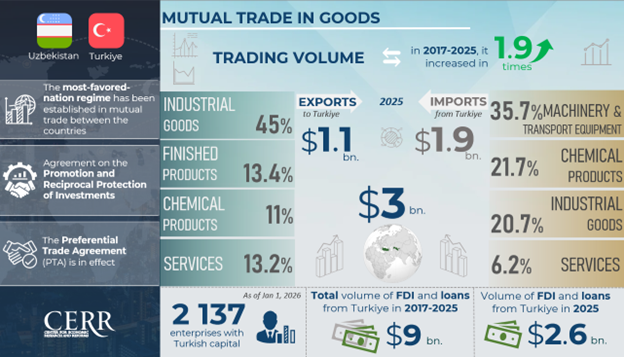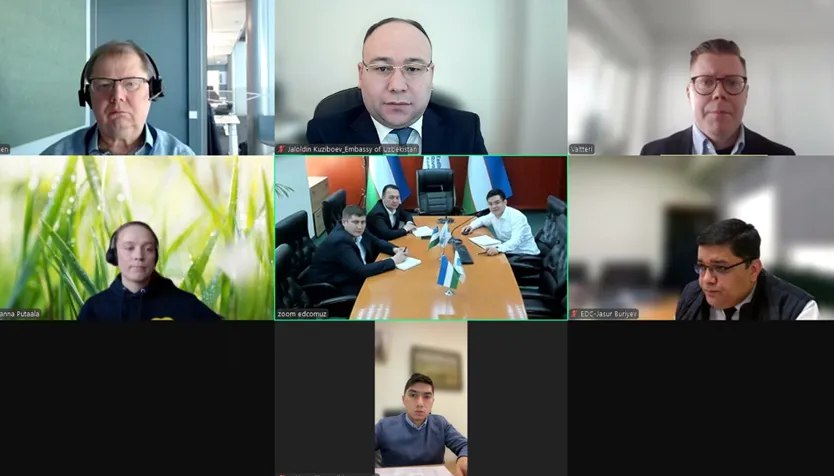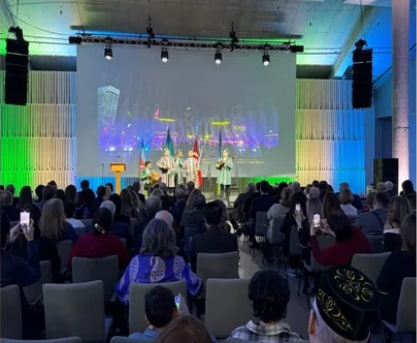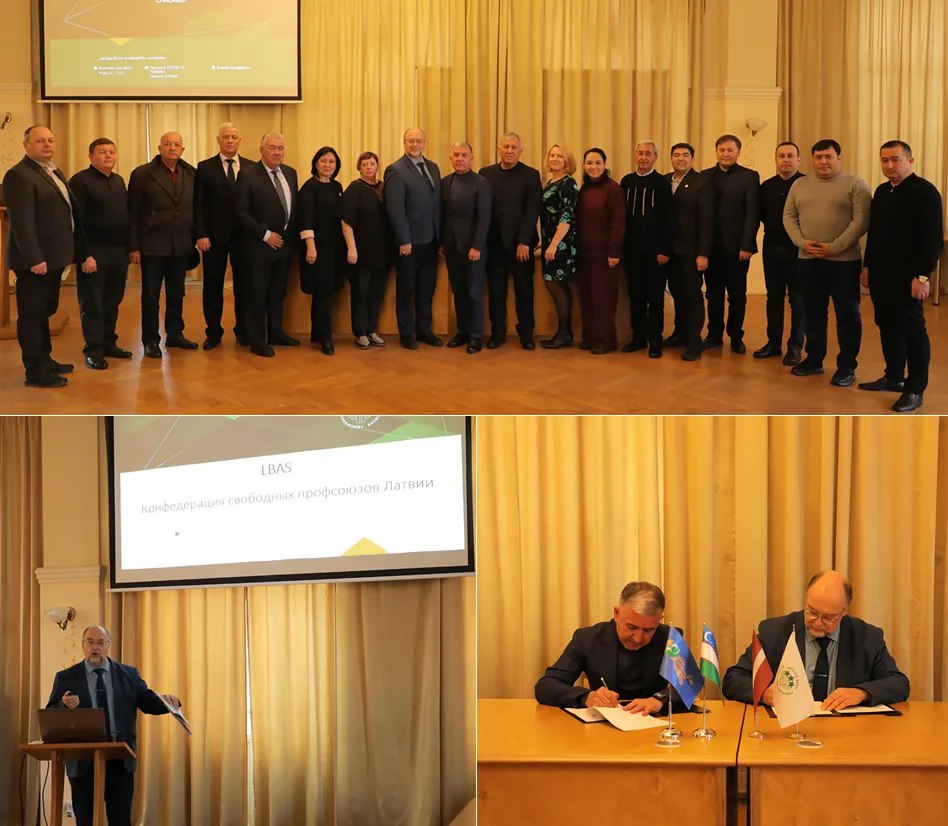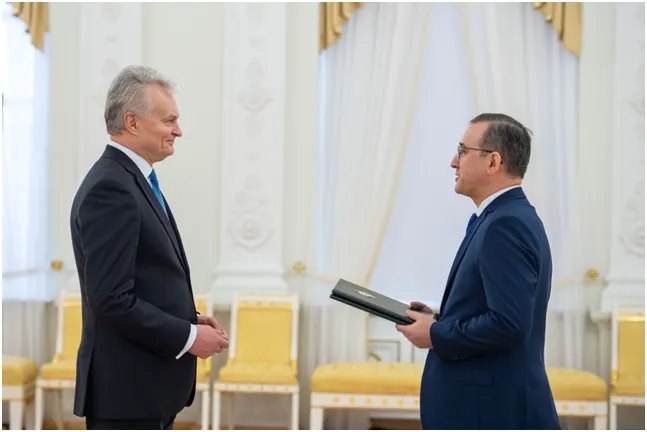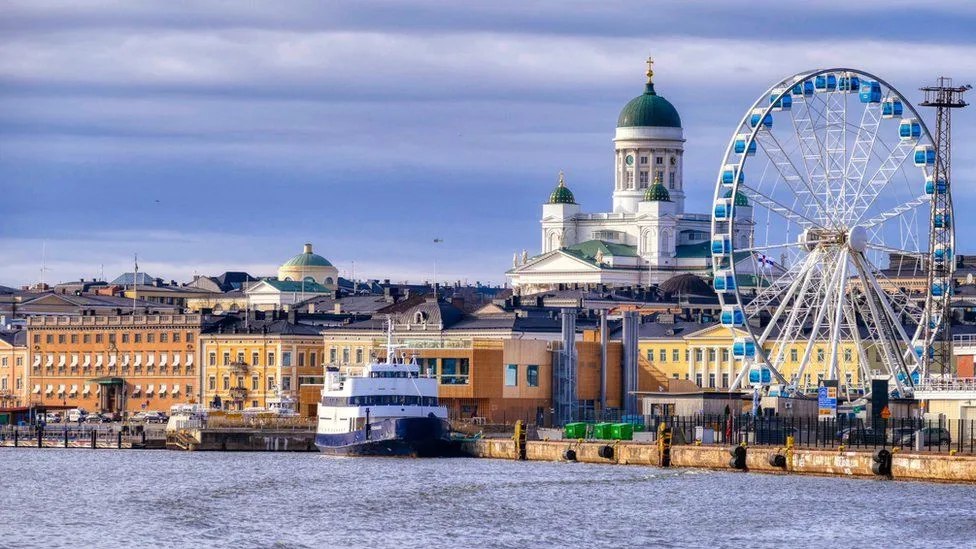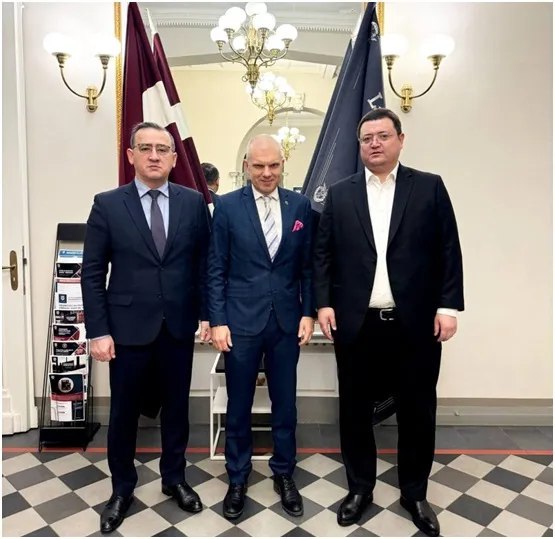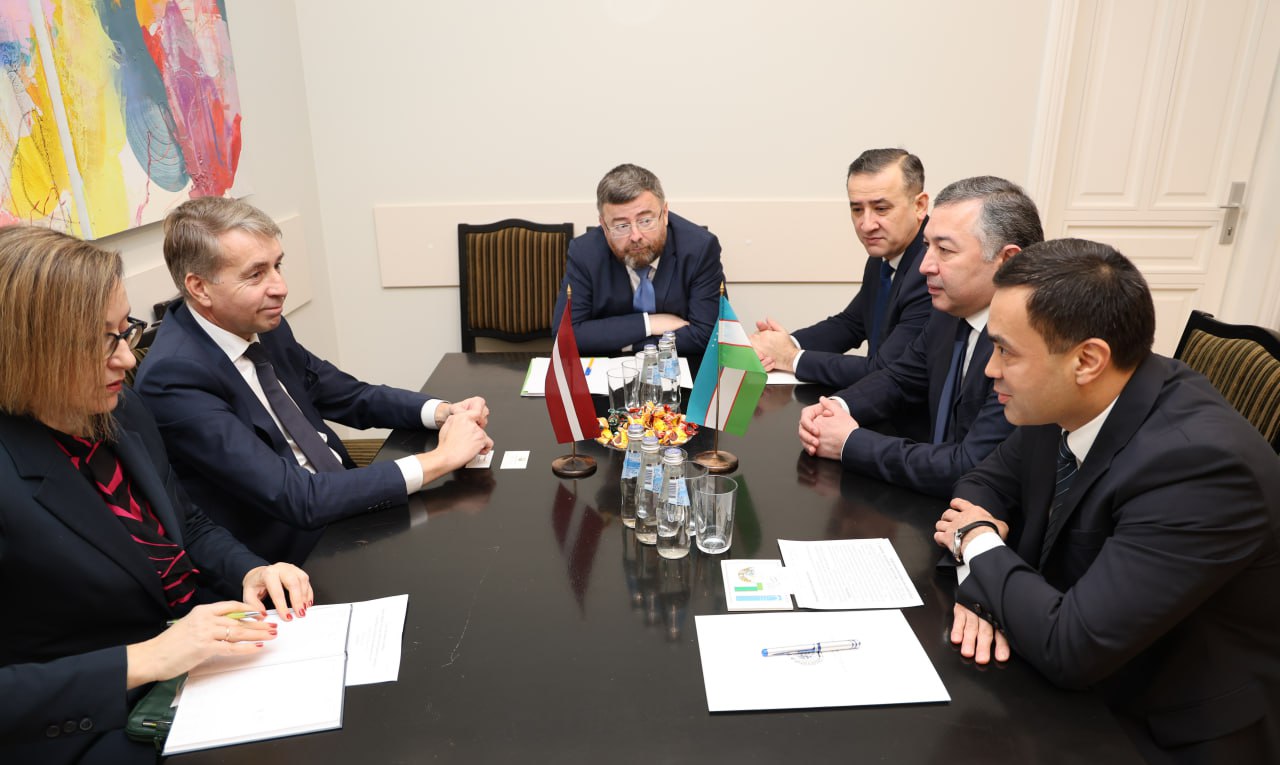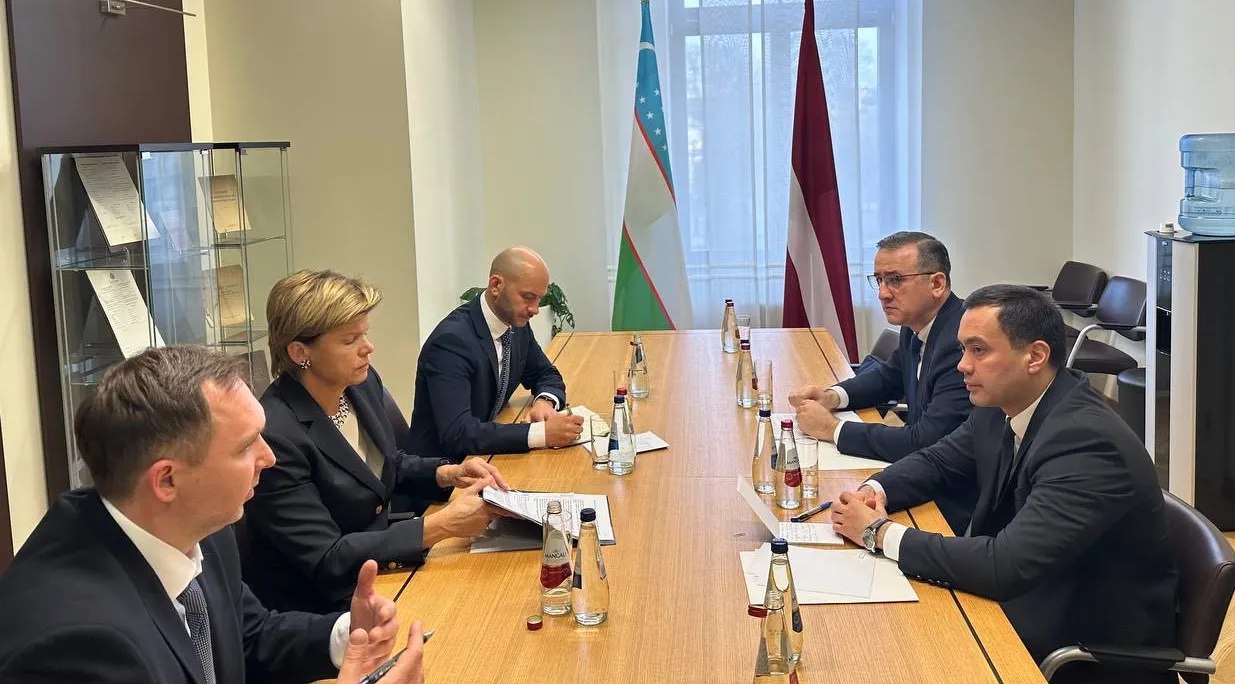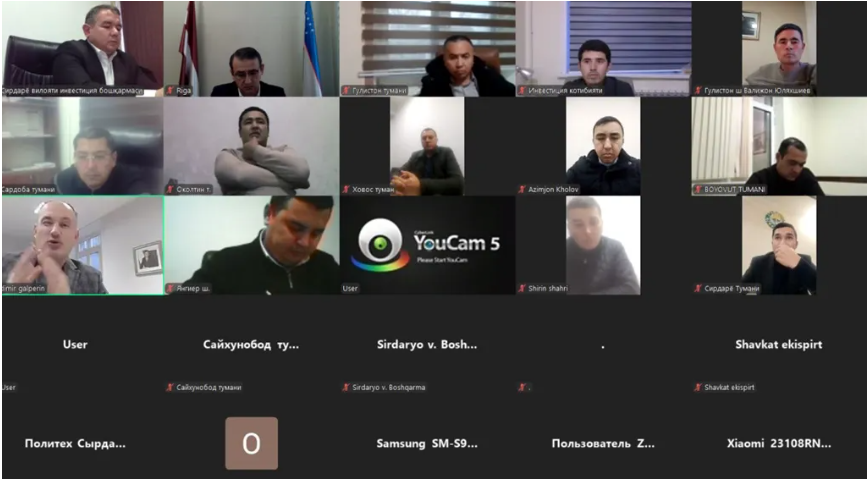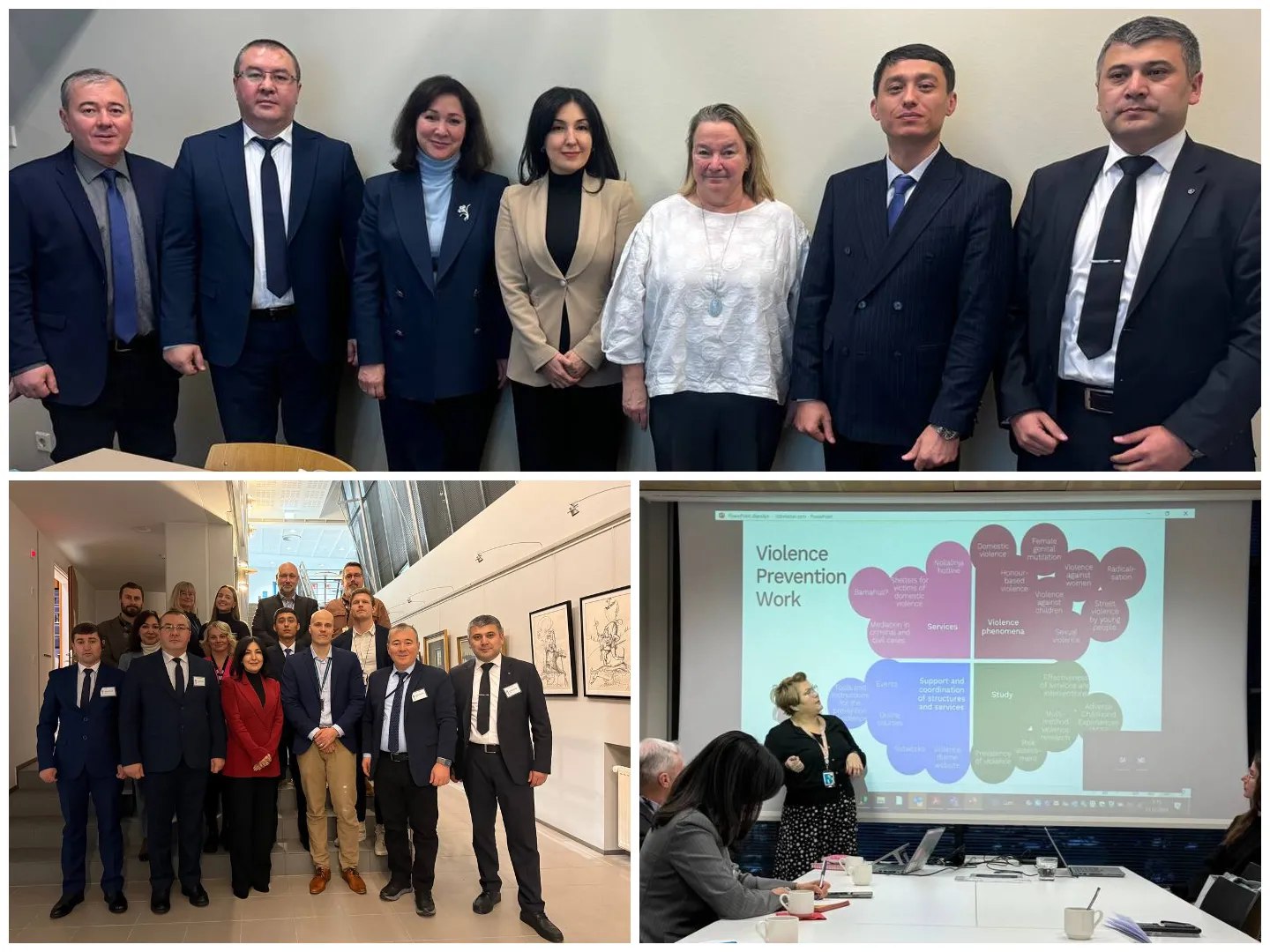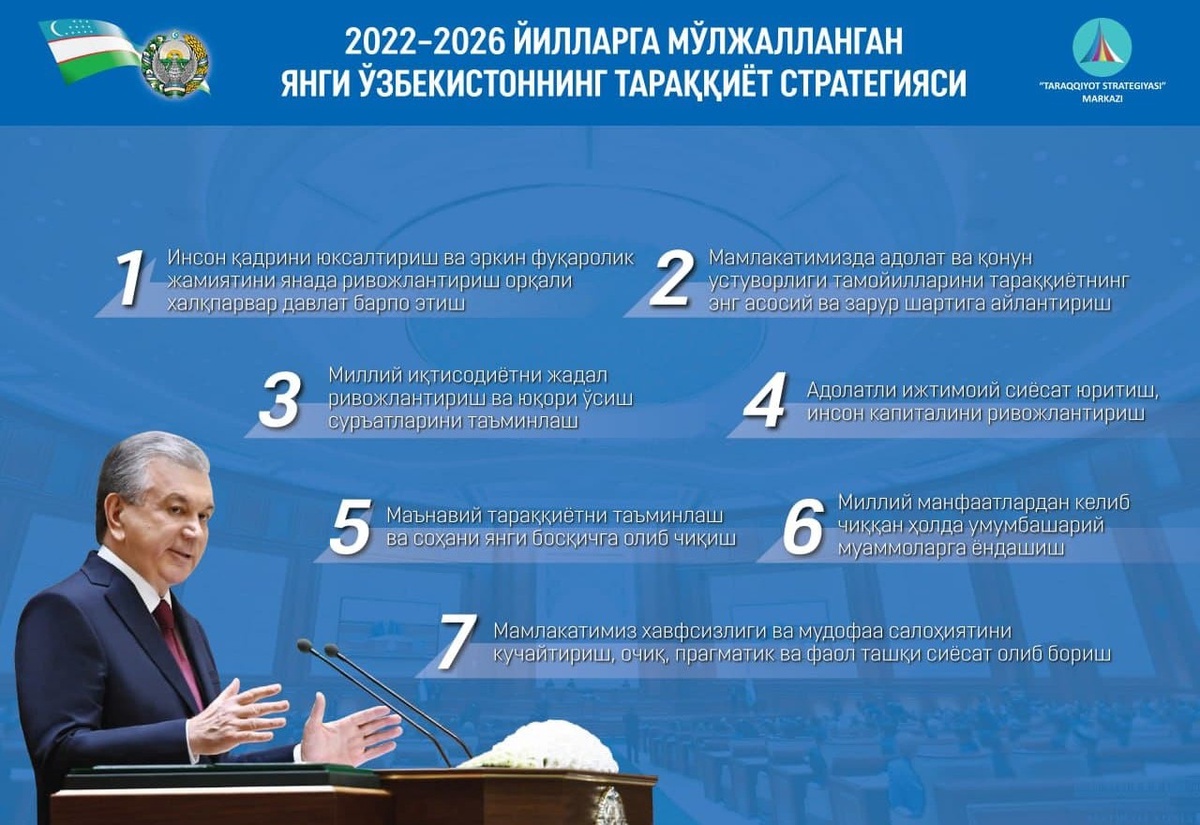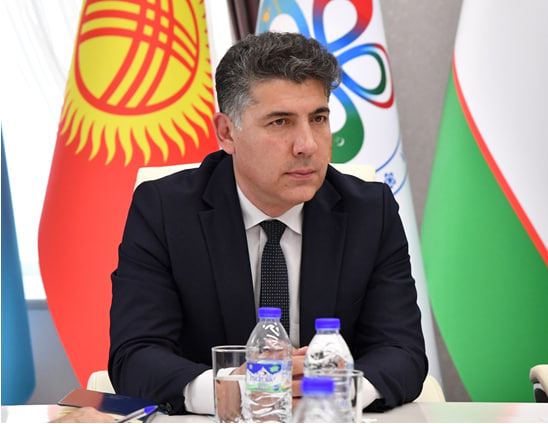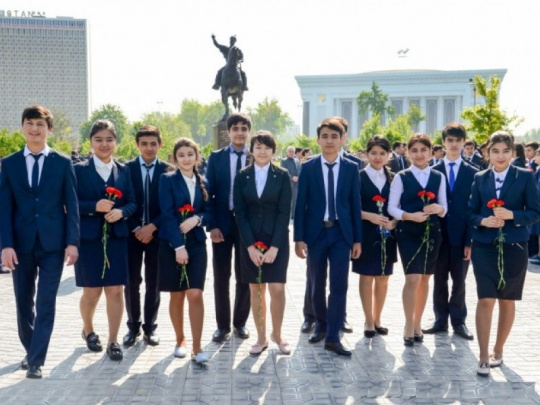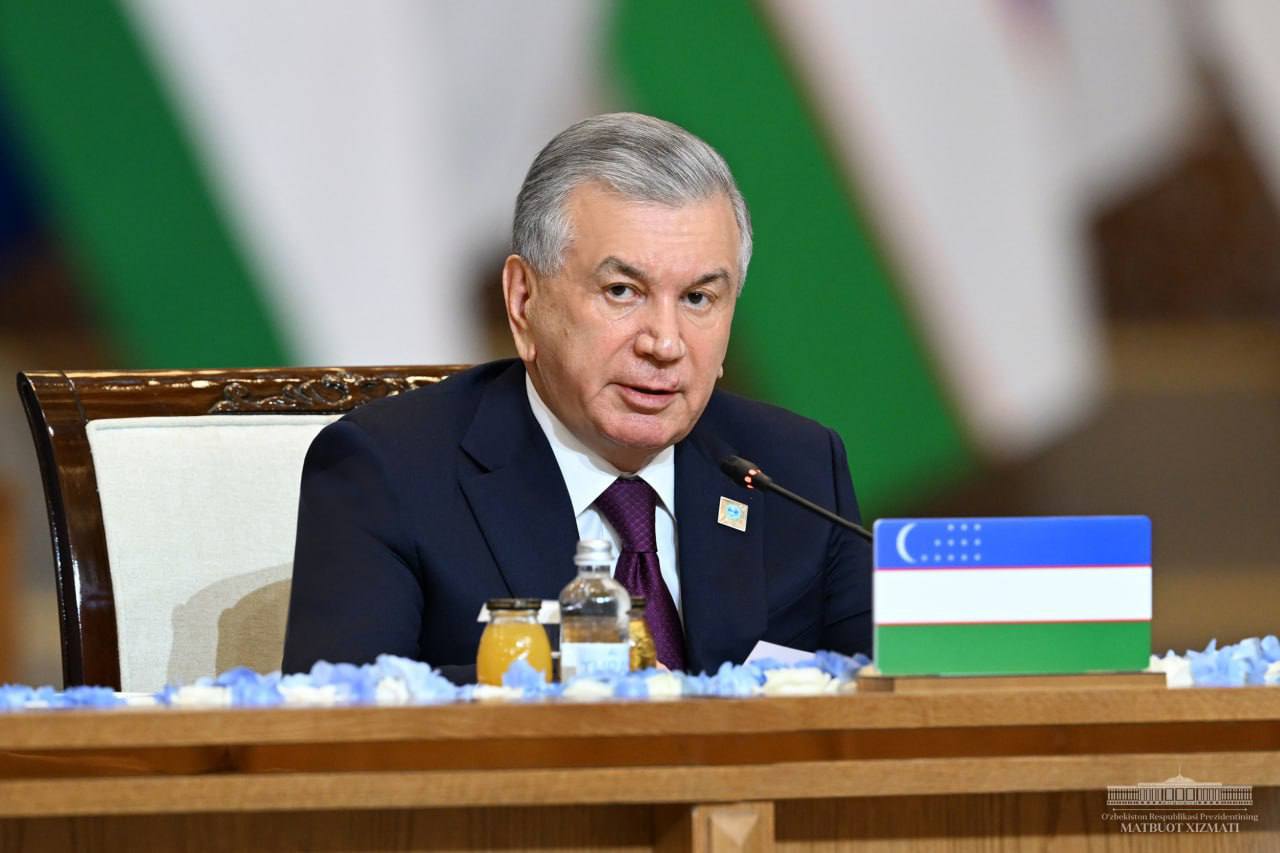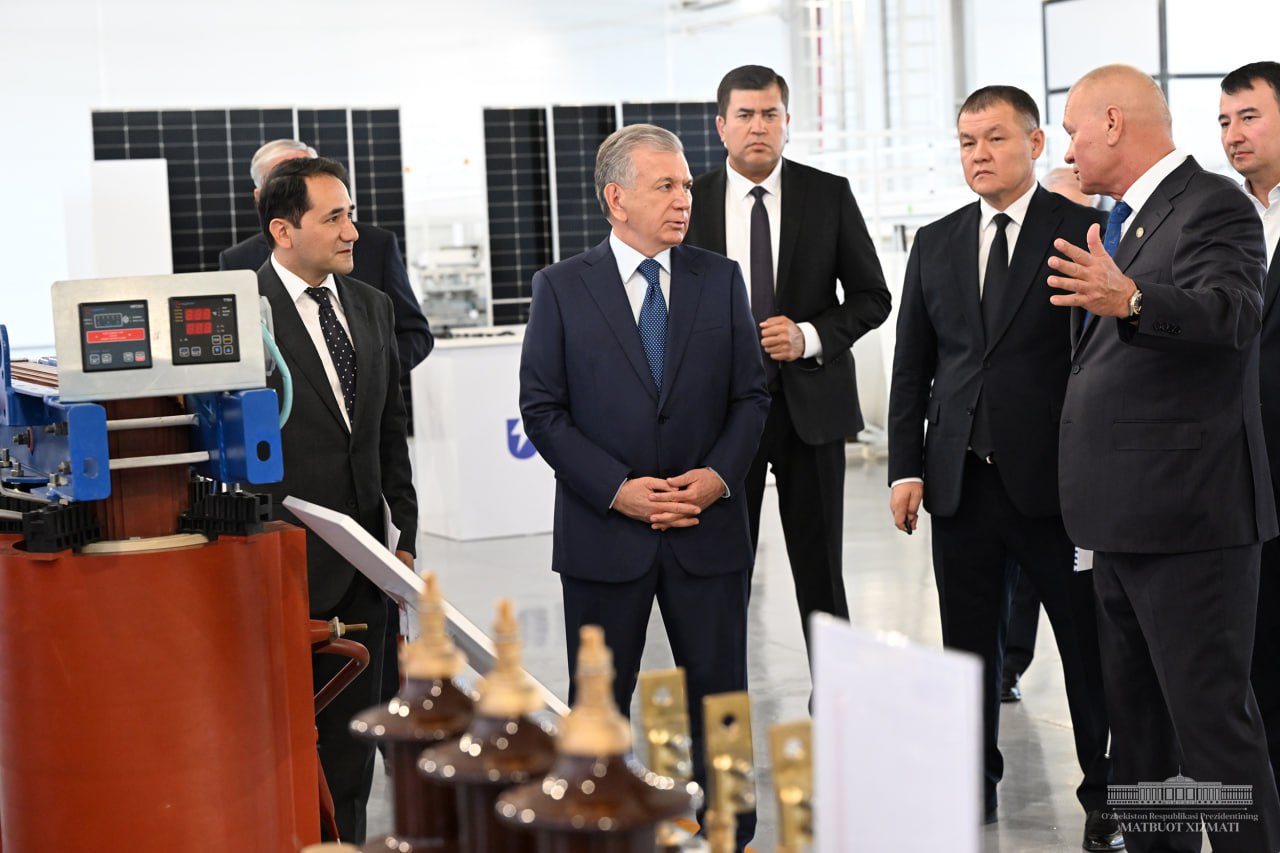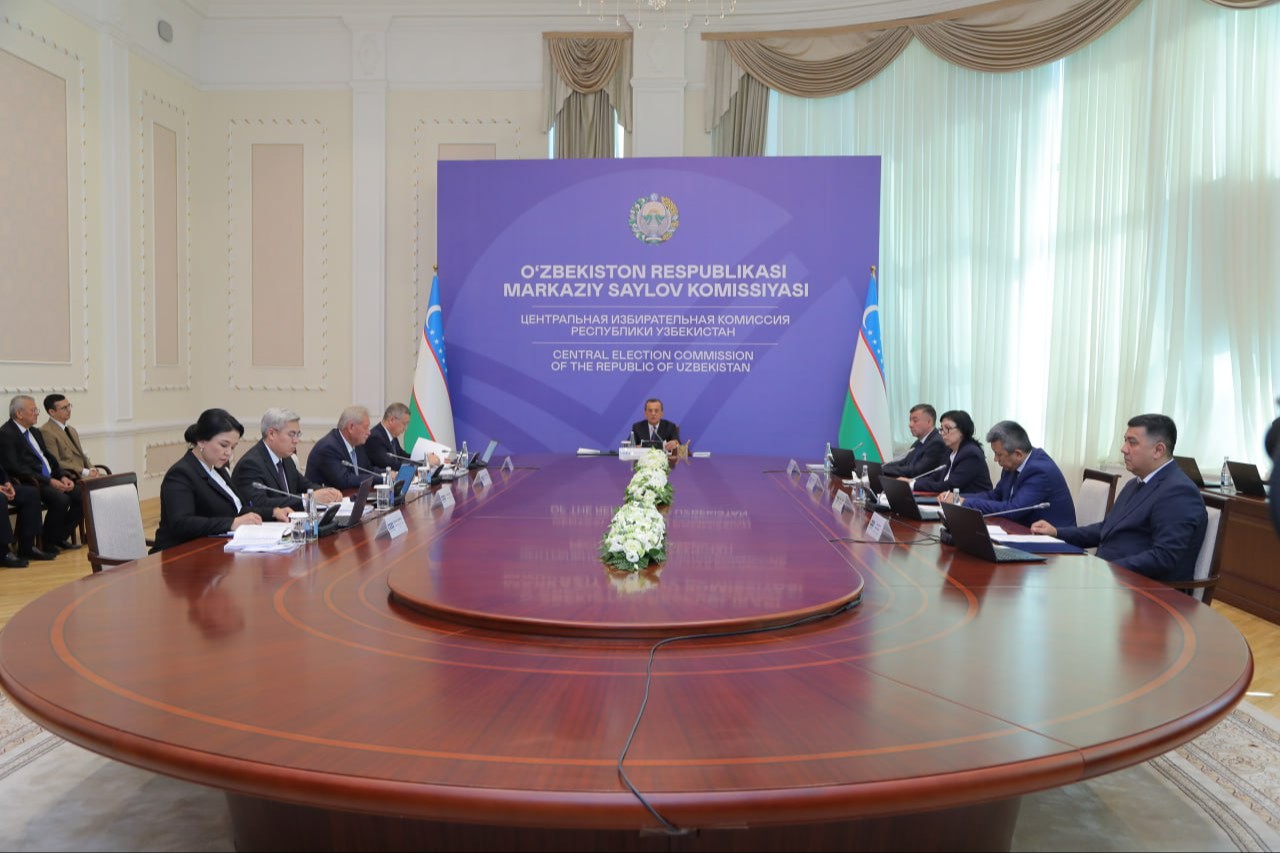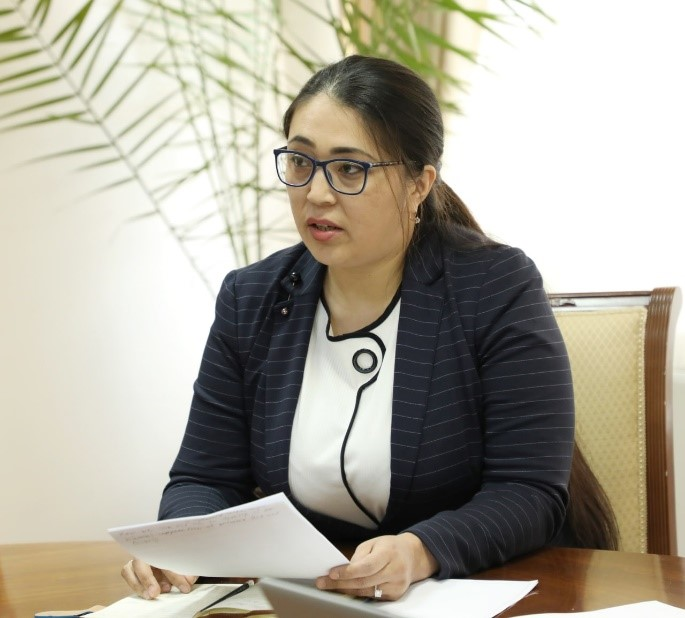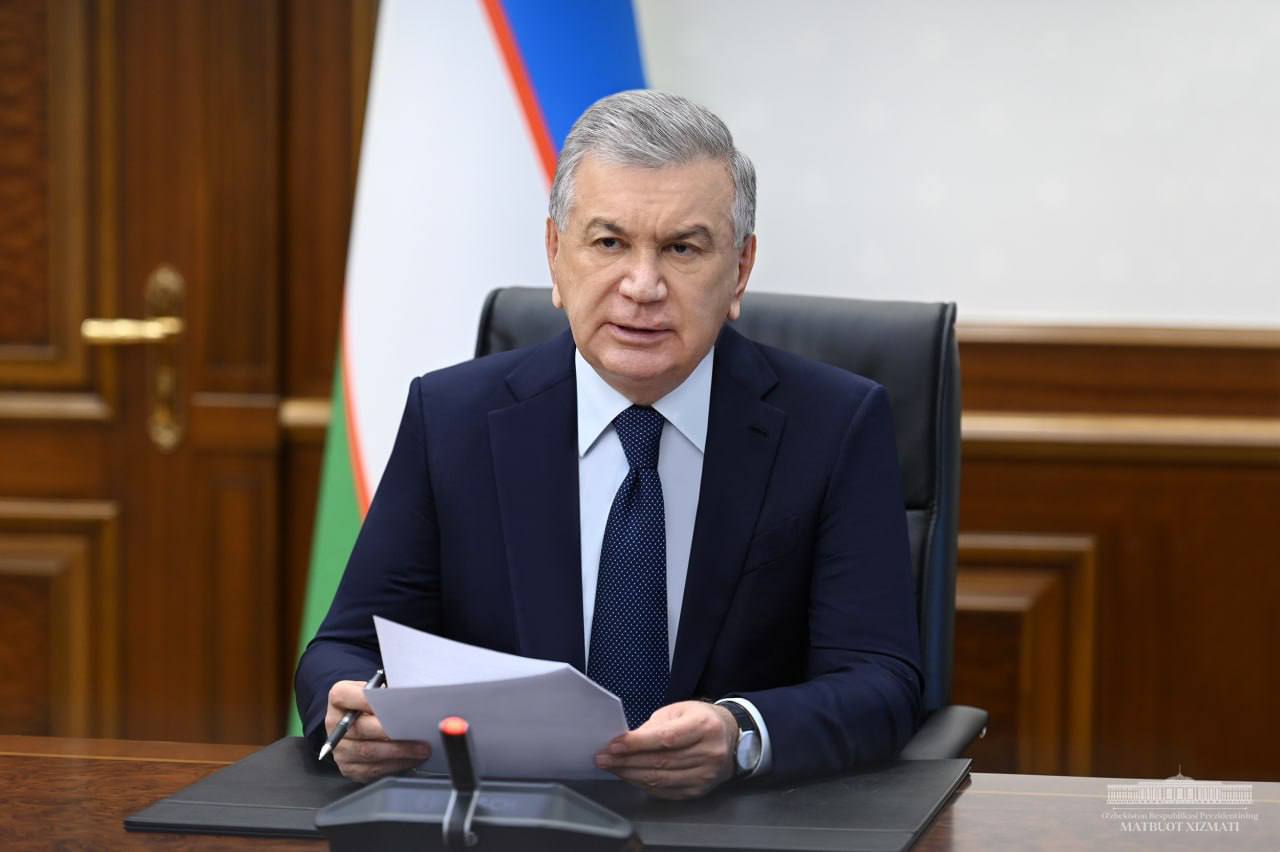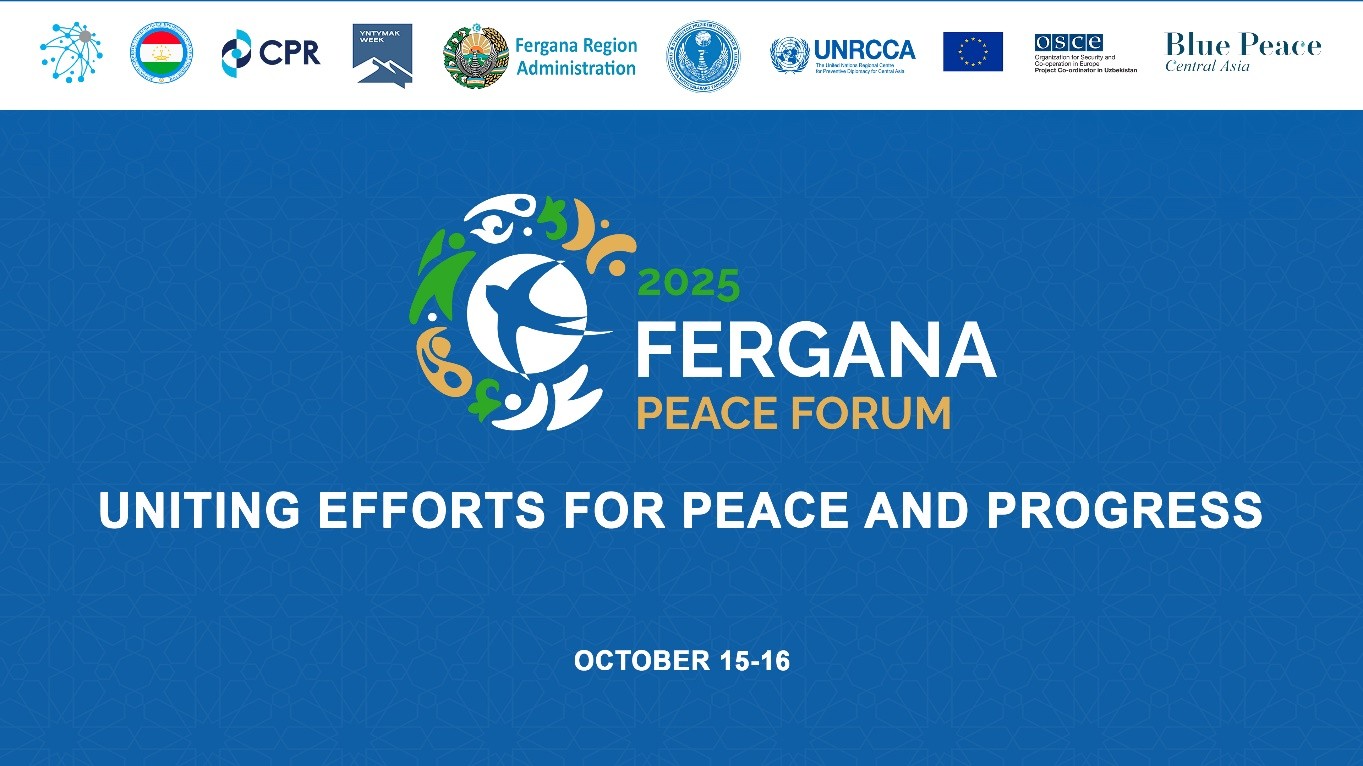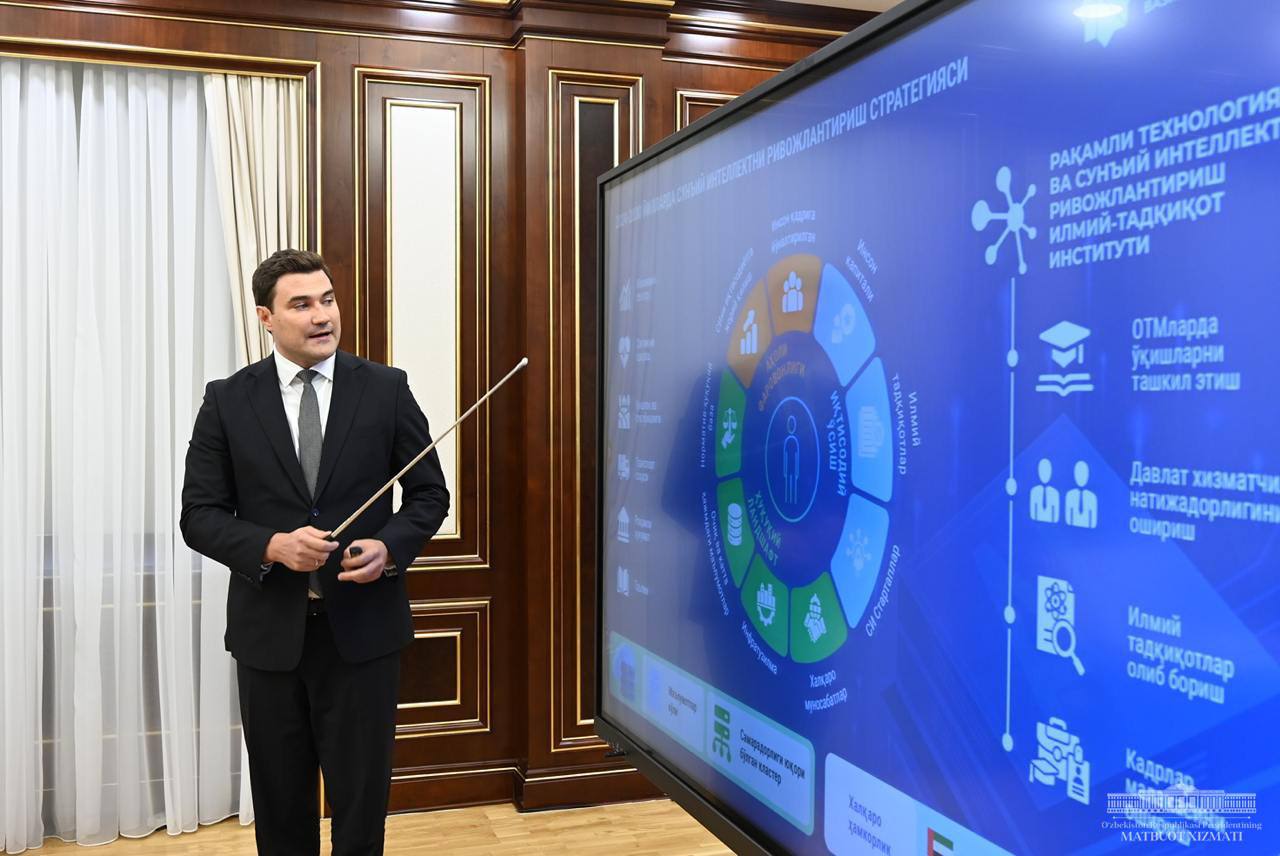Узбекистан и страны Балтии объединяют усилия в борьбе с коррупцией
15.07.2025РИГА, 15 июля. /ИА «Дунё»/. Делегация Узбекистана во главе с директором Агентства по противодействию коррупции Акмалом Бурхановым посетила Латвию и Литву с целью укрепления двусторонних связей и определения новых перспективных направлений сотрудничества в сфере борьбы с коррупцией, сообщает корреспондент ИА «Дунё».
В рамках визита состоялись двусторонние встречи с директором “Transparency International Latvia” Кристой Асмусой и заместителем руководителя Бюро по предотвращению и борьбе с коррупцией Латвии Янисом Розе. В ходе встреч стороны выразили обоюдную заинтересованность в продолжении эффективного сотрудничества и расширении масштабов реализуемых совместных проектов.
В частности, на встрече с директором “Transparency International Latvia” обсуждались вопросы разработки эффективных стратегий противодействия коррупции, улучшения позиций Узбекистана в Индексе восприятия коррупции, обеспечения открытости и прозрачности государственных органов в этой сфере, а также повышения потенциала институтов гражданского общества.
На встрече с заместителем руководителя Бюро по предотвращению и борьбе с коррупцией Латвии состоялся обмен опытом по вопросам антикоррупционной экспертизы нормативно-правовых актов и их проектов, а также крупных строительных проектов. Стороны также обсудили практику оценки коррупционных рисков и мониторинга процессов государственных закупок.
Важно отметить, что Агентство по противодействию коррупции Узбекистана и Бюро по предотвращению и борьбе с коррупцией Латвии в 2022 году подписали Меморандум о взаимопонимании. В рамках этого документа осуществляется сотрудничество в сферах укрепления двусторонних связей в борьбе с коррупцией, обмена передовым опытом и информацией, повышения квалификации кадров, а также организации учебных мероприятий, семинаров и тренингов по вопросам профилактики коррупции.
В ходе встречи с директором Службы специальных расследований Литвы Линасом Пернавасом была подчеркнута значимость проводимых в Узбекистане реформ и роль международного сотрудничества в сфере противодействия коррупции. Стороны также отметили важность обмена опытом с Литвой для его адаптации и применения в национальной практике.
На встрече были обсуждены вопросы двустороннего сотрудничества в области профилактики коррупции, оценки коррупционных рисков и повышения квалификации кадров.
По итогам встречи был подписан Меморандум о взаимопонимании между Агентством по противодействию коррупции Узбекистана и Службой специальных расследований Литвы, создающий основу для дальнейшего развития сотрудничества в борьбе с коррупцией.
Подписание Меморандума стало важным шагом к укреплению международного сотрудничества Узбекистана в сфере противодействия коррупции. Ожидается, что реализация положений Меморандума будет способствовать обмену опытом, внедрению передовых практик и, как следствие, повышению эффективности антикоррупционных мер и улучшению позиций Узбекистана в международных рейтингах.
The Constitution of Uzbekistan: a foundation for modern statehood and human dignity
28.11.2025The 33rd anniversary of the adoption of the Constitution of the Republic of Uzbekistan is a momentous occasion for the nation. For the first time in our independent statehood, a Constitution adopted through the will of the people stands as a cornerstone of modern governance. It embodies the rich experience of national state-building, addresses pressing societal and administrative challenges, and presents a carefully considered strategy for the relationship between the individual, society, and the state amidst complex global geopolitical developments. In essence, the renewed Constitution reflects our irreversible commitment to democratic reforms in both state governance and human rights.
Our Basic Law defines the path of national development, ensures that reforms remain irreversible, and serves as the guiding framework for the country’s statehood model.
The anniversary is not only a celebration but also an opportunity to reflect on the Constitution’s role in daily life and its unmatched significance in safeguarding human dignity and justice. The President’s directive on celebrating Constitution Day at a high level reinforces this, highlighting the deep legal, moral, and strategic importance of the Constitution in modern society.
In today’s rapidly changing world, a country’s competitiveness, the effectiveness of governance, and the protection of human rights depend on constitutional norms and institutional mechanisms that meet contemporary needs. The revised Constitution embodies such modern legal approaches. It articulates principles such as human dignity, liberty, equality, social justice, popular sovereignty, and the rule of law, and establishes practical mechanisms for implementing these principles.
The Constitution’s impact extends to all sectors, uniting them under a single socio-legal system aimed at the overarching goal of ensuring human well-being. It serves as the foundation for consistent and sustainable reforms, from strengthening democracy and civil society to protecting entrepreneurship and expanding social protection. Positive changes in healthcare, education, science, culture, and sports all reflect the practical outcomes of these constitutional principles.
The core of these tasks is to convey the philosophy of the renewed Constitution, endorsed by the people, to every layer of society. It recognizes human dignity as the highest value, strengthens social solidarity, elevates legal culture, and unites the efforts of citizens to consciously and responsibly shape their future as a modern state founded on the rule of law – all under the noble ideal: “For the Motherland, for the Nation, for the People!”
The scholarly community and mentors in constitutional law play a crucial role in this process. Every academic study, legal insight, and educational initiative deepens public understanding of the spirit and essence of constitutional norms.
Practical mechanisms are also advancing these goals. For instance, “Law School” (“Huquq maktabi”) mobile application, developed under the President’s 24 May 2024 decree, enables citizens to acquire legal knowledge independently, conveniently, and in a modern format. With nearly 66,000 registered users, 32 educational courses, and over 33,000 users having completed courses and obtained certificates, the application is a clear sign of growing public interest in legal literacy. It is an effective, modern tool for strengthening legal culture, ensuring the rule of law, and enhancing citizens’ legal knowledge.
Tashkent State University of Law plays a vital role in educating the younger generation. Its faculty have developed “Foundations of State and Law” textbooks for students in grades 8–11, based on the revised Constitution, which help students understand its spirit and essence and develop practical skills to apply it in everyday life.
Ultimately, understanding the Constitution’s place in our lives and ensuring that its provisions are applied in all areas requires active civic engagement, a high level of legal culture, and steadfast commitment to the rule of law. The Constitution is more than a legal document; it is the moral benchmark of national development and the foundation that strengthens citizens’ trust in the state and society’s confidence in the future. Respecting it is not only a constitutional duty but also a civic responsibility in building the New Uzbekistan.
Ikhtiyor Bekov
Head of Constitutional Law Department,
Tashkent State University of Law
Professor of Law, DSc.
Strengthening Peace in Gaza and Expanding Economic Ties with the U.S.
27.02.2026
On the Inaugural Meeting of the Peace Council in Washington
At the invitation of the President of the United States Donald Trump, President of the Republic of Uzbekistan Shavkat Mirziyoyev paid a working visit to Washington on February 17–19 to participate in the inaugural meeting of the Peace Council. The visit combined a substantive political agenda with an extensive economic program and resulted in a number of agreements aimed at further strengthening Uzbek-American strategic partnership and expanding bilateral cooperation across key sectors.
Expanding Participation in Addressing Global Challenges
The Peace Council is an intergovernmental initiative put forward by President Trump within the framework of the Gaza peace plan endorsed by the UN Security Council in November 2025. The establishment of this platform is intended not only to coordinate humanitarian assistance but also to create institutional mechanisms for long-term stabilization, reconstruction, and socio-economic recovery of the Gaza Strip, while reducing the risks of renewed escalation in the Middle East.
The Charter of the Peace Council was signed on January 22, 2026, on the sidelines of the World Economic Forum in Davos. Signatories included leaders and representatives of Azerbaijan, Argentina, Armenia, Bahrain, Bulgaria, Hungary, Indonesia, Jordan, Kazakhstan, Qatar, Morocco, Mongolia, the United Arab Emirates, Pakistan, Paraguay, Saudi Arabia, Türkiye, Uzbekistan, and Kosovo. Subsequently, Belarus, Albania, Cambodia, Egypt, El Salvador, Jordan, and Kuwait officially joined the group of founding states, expanding the Council’s geographic and political representation.
By joining the founding members at the invitation of the U.S. President, Uzbekistan reaffirmed its commitment to peaceful diplomacy, respect for international law, and shared responsibility for maintaining global stability. Uzbekistan recognized Palestine in 1994 and consistently supports the right of the Palestinian people to establish an independent state in accordance with international legal norms and UN resolutions.
Uzbekistan’s policy toward Gaza combines principled political positioning with practical humanitarian engagement. In 2023, Uzbekistan allocated $1.5 mln through UNRWA. In December 2023, 100 wounded Palestinian women and children were evacuated and provided with medical treatment and rehabilitation services. In 2025, Uzbekistan developed a comprehensive state support mechanism for Palestinian citizens received in the country, including asylum procedures, access to healthcare, education for children, and employment assistance. A dedicated fund under the National Agency for Social Protection was established to finance these measures through budgetary and charitable resources.
The inaugural meeting of the Peace Council held on February 19 in Washington brought together leaders and representatives of more than 40 countries. Discussions focused on humanitarian relief, infrastructure restoration, and ensuring the sustainability of the post-conflict recovery process. At the opening of the session, President Trump announced that nine countries – Kazakhstan, Azerbaijan, the UAE, Morocco, Bahrain, Qatar, Saudi Arabia, Uzbekistan, and Kuwait – had jointly pledged $7 bn in assistance to Gaza, while the United States committed an additional $10 bn to support the Council’s activities.
In his address, President Mirziyoyev expressed full support for the peace initiative and confirmed Uzbekistan’s readiness to participate practically in its implementation. Particular emphasis was placed on the principle that any external governance framework for Gaza must rely on internal public support in order to ensure legitimacy, stability, and long-term effectiveness.
Highlighting the importance of coordinated international efforts, the President noted that joint actions would help secure the sustainability of the post-conflict process and accelerate socio-economic recovery. Uzbekistan also declared its readiness to contribute to the construction of residential housing, schools, kindergartens, and healthcare facilities in Gaza, thereby supporting both humanitarian and development objectives.
The Palestinian and Gaza issue has remained on the international agenda for decades without a comprehensive solution. In this context, the creation of the Peace Council represents one of the most structured multilateral attempts in recent years to address the crisis, while Uzbekistan’s participation among the founding states reflects the growing recognition of its constructive diplomatic role.
Expanding Trade and Economic Cooperation
Alongside political dialogue, the economic dimension of the visit formed a central pillar of bilateral engagement. In recent years, Uzbekistan and the United States have steadily restored institutional mechanisms of strategic partnership and expanded practical cooperation.
Cooperation with the U.S. Export-Import Bank resumed in 2017 after a 13-year hiatus. Agreements were concluded between Amazon and Uztrade, while science, technology, and economic modernization were identified among priority cooperation areas. In 2018, a $100 mln memorandum on trade financing was signed between Eximbank and Uzbekistan’s National Bank for Foreign Economic Activity. Cooperation with Openbucks supported the development of e-commerce and digital payment infrastructure.
A major milestone was reached in September 2025 during the 80th UN General Assembly in New York, where negotiations between the two presidents resulted in the formation of a portfolio of contracts and prospective projects exceeding $100 bn. The agreements covered aviation, mining and chemicals, energy, finance, and innovation. Specific arrangements included cooperation with Denali Exploration Group on rare earth elements, Re Element Technologies in rare earth metals, Flowserve on modernization of pumping stations, Valmont Industries on water-saving technologies, and Palo Alto Networks in artificial intelligence.
During the Washington visit, President Mirziyoyev held meetings with U.S. Secretary of Commerce Howard Lutnick, Eximbank President John Jovanovic, DFC CEO Ben Black, and U.S. Trade Representative Jamieson Greer. Discussions focused on expanding financing for major industrial and infrastructure projects, supporting high-tech equipment exports, launching a bilateral Investment Platform, advancing Uzbekistan’s WTO accession, and strengthening regional trade cooperation under TIFA. The agreement establishing the Investment Platform was formally signed during the visit.
Additional bilateral documents were concluded covering construction of fuel station networks, sprinkler irrigation technologies, extraction and supply of critical minerals, development of poultry clusters, agro-industrial cooperation, financial market development, and investment climate reforms. The economic agenda was identified as one of the key pillars of Uzbek-American strategic partnership, with priority cooperation areas including critical raw materials, petrochemicals, energy, agriculture, and industrial modernization.
Trade and Investment Dynamics
The intensification of bilateral cooperation has already produced tangible economic results. Between 2017 and 2025, trade turnover increased 4.7-fold from $215 mln to $1 bn. Exports grew 9.1-fold to $291.7 mln, while imports rose 3.9-fold to $712.3 mln.
Exports to the United States are dominated by services (81%), including programming, financial, information, and transport services. Petroleum products account for 8.6%, machinery and equipment 3.7%, food products 3.5%, and industrial goods 3.3%.
Imports from the United States are led by machinery and equipment (59%), including aircraft, vehicles, computing equipment, engines, pumps, and industrial installations. Services account for 20.5%, chemicals 9.7%, industrial goods 3.8%, food products 3.2%, and manufactured goods 2.2%.
Investment cooperation has expanded dynamically. U.S. FDI and loans increased nearly 64-fold from $8.6 mln in 2017 to $383.2 mln in 2025, with cumulative inflows exceeding $2.9 bn. As of February 2026, 346 enterprises with U.S. capital operate in Uzbekistan, including 146 joint ventures and 200 wholly foreign-owned firms. Investments are concentrated in manufacturing, mining, construction, services, and agriculture.
Prospects for Deeper Economic Partnership
Recent dynamics indicate a transition from trade expansion toward long-term technological and industrial partnership. While services dominate exports, significant untapped potential remains in agro-processing, textiles, non-ferrous metallurgy, and higher value-added manufacturing.
Given annual U.S. imports of $118 bn in textiles and apparel, $539 bn in food products, and $213 bn in pharmaceuticals, even limited market penetration could significantly expand Uzbek exports and rebalance their structure.
Technology cooperation represents a separate strategic track. The United States accounts for 45% of Uzbekistan’s IT exports, with 448 of 800 exporters supplying digital services to the U.S. market. The next phase may involve joint industrial production in electronics and microelectronics with companies such as NVIDIA, Intel, and Qualcomm, enabling integration into global value chains.
Energy cooperation could support infrastructure modernization and renewable energy deployment, while pharmaceutical localization and joint R&D with companies such as Pfizer, Johnson & Johnson, and Merck offer additional avenues for technology transfer and investment.
Privatization and PPP initiatives create further opportunities. By 2030, the private sector share in Uzbekistan’s economy is projected to reach 85%, with stakes in 2,000 enterprises planned for sale and $30 bn in PPP projects to be launched. Cooperation with U.S. capital markets, including the NYSE and Nasdaq, may further support the development of Uzbekistan’s financial infrastructure.
Conclusion
President Mirziyoyev’s visit to Washington and participation in the inaugural Peace Council meeting carry both diplomatic and economic significance.
Uzbekistan’s engagement in the Council strengthens its international standing and expands its contribution to addressing global challenges. At the same time, the agreements reached and the expanding portfolio of joint projects elevate Uzbek-American relations to a new stage characterized by deeper institutional cooperation, industrial integration, and long-term strategic trust.
Viktor Abaturov,
Center for Economic Research and Reforms
In recent years, Uzbekistan has adopted more than 3 thousand normative acts aimed at comprehensive support for business
22.06.2024Business rights are a priority of the New Uzbekistan
Since 2017, Uzbekistan has put forward cardinal, unexpected and favorable changes for entrepreneurs. The peculiarity of these changes is that they were aimed at reducing the control functions of the state and opening the way to the free conduct of business. All barriers that hindered entrepreneurs at that time were gradually eliminated.
Liberalization of punishment against entrepreneurs, elimination of possibilities of unjustified interference in their activities, strengthening of close diplomatic ties with foreign countries, simplification of export-import procedures - all this gave a powerful impetus to the development of business environment and motivated entrepreneurs to develop and actively expand their business without obstacles.
In particular, all types of unscheduled inspections and counter-inspections of the activities of business entities, including criminal cases, were canceled. A mechanism of putting forward a moratorium on inspections conducted in the activities of entrepreneurs was introduced, which is actively used to this day.
The measure of criminal punishment in the form of deprivation of the right to carry out entrepreneurial activities was abolished.
Since 2017, the Business Ombudsman, created on the initiative of the head of state himself, has been functioning effectively. Reporting to the President, it makes proposals to improve the business environment in the country and remove various obstacles to the development of entrepreneurship.
Uzbekistan is not resting on its laurels. The country has set itself big goals - to bring the share of the private sector in GDP to 80% and the share of the private sector in exports to 60% by 2027.
The president's dialog with entrepreneurs is the key to solving many problems
It is important for every entrepreneur to be listened to in case of difficulties or obstacles in his/her activity. This is especially important if the problem requires the intervention of government officials.
Obviously, in the conditions of economic development of the state there are problems that create difficulties for business. They require prompt intervention from the highest authorities in order to prevent stagnation in the development of this or that industry, as well as to give an impetus for further development.
Such a peculiar impetus was the dialog of entrepreneurs with the President, which is held annually, and entrepreneurs have the opportunity to communicate directly with the head of state.
The opportunity to be heard is given to every entrepreneur in every region of the country through meetings. After analysis and generalization, the most relevant and justified proposals are submitted to the head of state for appropriate decisions. In addition, the proposals and complaints of hundreds of entrepreneurs are listened to on a day of open dialog.
Over the past three years, more than 33 thousand appeals and proposals were received from entrepreneurs during the open dialogs. As a result of the dialogs, more than 150 initiatives were put forward to remove obstacles in the development of entrepreneurship, as well as its further development.
In particular, if we analyze the initiatives put forward after the 2021 Dialogue, the reforms were aimed at mitigating the effects of the pandemic, extending tax and customs exemptions and granting deferral of taxes and mandatory payments.
The 2022 Dialogue stood out for the support of business representatives on various fronts, starting with tax reforms such as reducing VAT percentages to 12 percent, shortening the VAT refund period to 7 days, and introducing a flat tax rate of 4 percent instead of the current sales tax ranging from 4 percent to 25 percent.
In addition, the mechanisms for ensuring the rights of entrepreneurs have been expanded by introducing a procedure for canceling the decision to allocate land plots or property only in court.
As a result of the dialog, another problem that worried entrepreneurs was eliminated, concerning the application of higher tax rates due to the non-use of an empty building or land plot. This mechanism was not only canceled, but also debts of entrepreneurs in the amount of 2 trillion soums formed as a result of payment of taxes at the increased rate were written off.
Last year, as a result of the dialog, the mechanisms of financing entrepreneurship were radically revised, the Business Development Bank was established, and tax reforms aimed at protecting the rights of entrepreneurs were introduced.
It has become a tradition for entrepreneurs to look forward to the date "August 20 - Entrepreneurs' Day" every year. It is on the eve of this day that new initiatives to support business are announced in the course of dialog.
Digitalization of business protection as a guarantee to ensure unjustified interference in the activities of entrepreneurs
One of the topics of most concern to entrepreneurs is the topic of inspections. In this area, it is important to ensure the protection of entrepreneurs.
Digital monitoring of inspections conducted in the activities of entrepreneurs by state bodies is carried out by the Business Ombudsman.
The information system "Unified State Control" allows registering inspections carried out in the activities of entrepreneurs, their results, as well as filing complaints in case of violations by the inspecting authorities.
State bodies are prohibited from conducting inspections without registering them in this system. Otherwise, this will serve as grounds for administrative liability.
In order to ensure the transparency of inspections and the rights of business entities, the new system "Unified State Control" provides full access for business entities as well.
Thus, in the new system "Unified State Control" a number of functions have been added, such as the Electronic Book of Registration of Inspections, which provides full oversight of inspections by the Authorized Body.
In order to combat corruption and illegal inspections in the system "Unified State Control" was made an electronic database of all officials with the right to conduct inspections This in turn eliminates the possibility of falsification of data of the certificate with the right to conduct inspections. Entrepreneurs can check the data of the special license of inspectors and in case of non-compliance with the system have the right not to allow them on their territory.
Moreover, registers of state control functions and mandatory requirements have been compiled for business entities, which provides an opportunity to familiarize with the control functions of state inspections and mandatory requirements in relation to them.
As a result of the introduction of the "Unified State Control" system, it has become much easier for the Authorized Body to identify facts of offenses in the state control.
Strategy "Uzbekistan - 2030" - prospects for business development in the future
Uzbekistan does not stop at what has been achieved. Rapid steps to further support the business sphere are also enshrined in the Strategy "Uzbekistan - 2030".
Efficient use of local raw material base and development of industry based on advanced technologies, consistent transfer of monopolistic spheres to market principles, increasing the share of private sector in the economy, creating the most favorable conditions for free activity of entrepreneurs are still a hot topic.
In addition, full digitalization and simplification of the tax system is planned, as well as the creation of equal opportunities for all entrepreneurs to make the official sector preferable and more profitable than illegal activities.
For this purpose, a simplified and compact legislative system will be created, convenient for the population and business entities.
Dilmurod Kasimov,
authorized to protect the rights and legitimate interests
business entities

